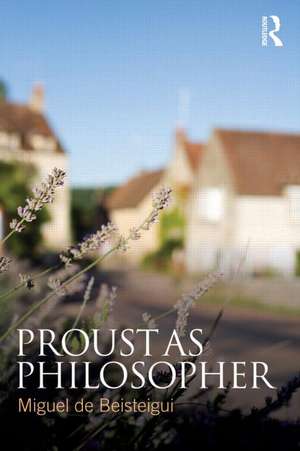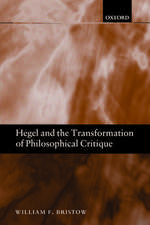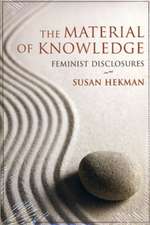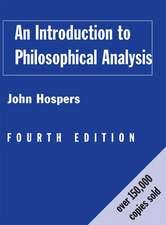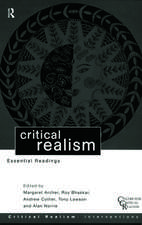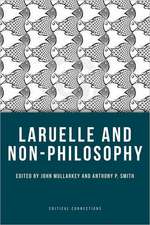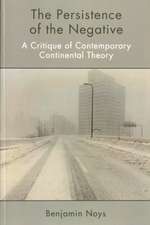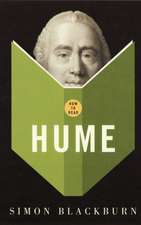Proust as Philosopher: The Art of Metaphor
Autor Miguel de Beistegui Traducere de Dorothée Bonnigal-Katz, Simon Sparksen Limba Engleză Paperback – 2 aug 2012
Miguel de Beistegui begins with an observation: throughout In Search of Lost Time, the two main characters seem prone to chronic dissatisfaction in matters of love, friendship and even art. Reality always falls short of expectation. At the same time, the narrator experiences unexpected bouts of intense elation, the cause and meaning of which remain elusive. Beistegui argues we should understand these experiences as acts of artistic creation, and that this is why Proust himself wrote that true life is the life of art.
He goes on to explore the nature of these joyful and pleasurable experiences and the transformation required of art, and particularly literature, if it is to incorporate them. He concludes that Proust revolutionises the idea of metaphor, extending beyond the confines of language to understand the nature of lived, bodily experience.
| Toate formatele și edițiile | Preț | Express |
|---|---|---|
| Paperback (1) | 405.66 lei 6-8 săpt. | |
| Taylor & Francis – 2 aug 2012 | 405.66 lei 6-8 săpt. | |
| Hardback (1) | 997.45 lei 6-8 săpt. | |
| Taylor & Francis – 9 aug 2012 | 997.45 lei 6-8 săpt. |
Preț: 405.66 lei
Nou
Puncte Express: 608
Preț estimativ în valută:
77.62€ • 81.05$ • 64.10£
77.62€ • 81.05$ • 64.10£
Carte tipărită la comandă
Livrare economică 15-29 aprilie
Preluare comenzi: 021 569.72.76
Specificații
ISBN-13: 9780415584326
ISBN-10: 0415584329
Pagini: 136
Dimensiuni: 156 x 234 x 15 mm
Greutate: 0.2 kg
Ediția:1
Editura: Taylor & Francis
Colecția Routledge
Locul publicării:Oxford, United Kingdom
ISBN-10: 0415584329
Pagini: 136
Dimensiuni: 156 x 234 x 15 mm
Greutate: 0.2 kg
Ediția:1
Editura: Taylor & Francis
Colecția Routledge
Locul publicării:Oxford, United Kingdom
Public țintă
Postgraduate and UndergraduateCuprins
1. Looking for Joy 2. Proust Among the Psychologists 3. Finding Joy (Involuntary Memory) 4. Giving Joy (Metaphor) 5. Dress or Patchwork? Index
Recenzii
"De Beistegui is bold to write yet one more book on philosophy in Proust. Bold and successful, since his attention to metaphor allows him to discover new insights, sometimes by clarification, other times through expansion into uncharted territory. … The author, with the aid of his translators, Katz and Simon, creates a work that is artful and a pleasure to read. ... Beistegui gives us much to think about." - Katherine Elkins, Notre Dame Philosophical Reviews
"Miguel de Beistegui is the rarest kind of philosophical reader: one who follows Proust where he goes, rather than leading him to foreordained theoretical conclusions, one who learns about life from Proust, rather than translating him into terms already known. This book deserves a place among the very small number of works on Proust that are serious about the depth and richness of Proust's thought. And the beautiful translation of Beistegui's account of Proust's style and vocabulary will enrich any English language reader's sense of Proust's language." – William Flesch, Brandeis University, USA
"Miguel de Beistegui's thought-provoking exploration of memory, imagination, metaphor, and that elusive quest for joy in the recherché masterfully illuminates the genius of Proust's fusion of philosophy and literature into a cathedral of words that transcends both without leaving either behind. Not only a welcome contribution to areas often neglected in Proust scholarship; it is also a challenging engagement with Proust's exploration of the human condition." - Nicolas de Warren, University of Leuven, Belgium
"Miguel de Beistegui is the rarest kind of philosophical reader: one who follows Proust where he goes, rather than leading him to foreordained theoretical conclusions, one who learns about life from Proust, rather than translating him into terms already known. This book deserves a place among the very small number of works on Proust that are serious about the depth and richness of Proust's thought. And the beautiful translation of Beistegui's account of Proust's style and vocabulary will enrich any English language reader's sense of Proust's language." – William Flesch, Brandeis University, USA
"Miguel de Beistegui's thought-provoking exploration of memory, imagination, metaphor, and that elusive quest for joy in the recherché masterfully illuminates the genius of Proust's fusion of philosophy and literature into a cathedral of words that transcends both without leaving either behind. Not only a welcome contribution to areas often neglected in Proust scholarship; it is also a challenging engagement with Proust's exploration of the human condition." - Nicolas de Warren, University of Leuven, Belgium
Descriere
Marcel Proust’s In Search of Lost Time has long fascinated philosophers for its complex accounts of time, personal identity and narrative, amongst many other themes. Proust as Philosopher is the first book to properly explore Proust from a philosophical angle and argues that the key to understanding Proust is the concept of experience.
